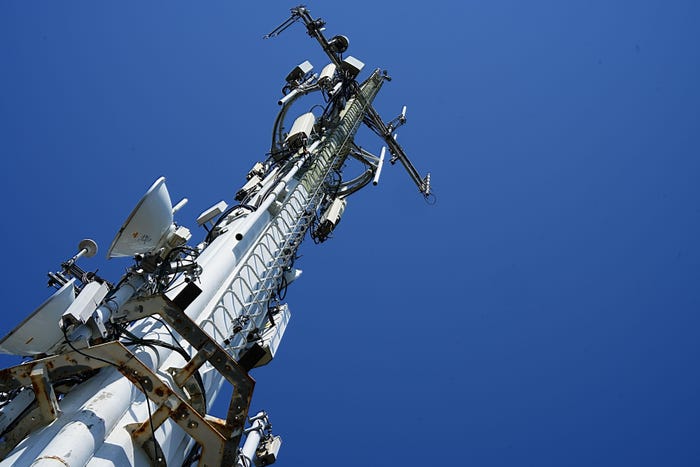The ACP is not dead yet
Funding for the Affordable Connectivity Program (ACP) officially ran out this month, but legislative efforts to revive the program are reemerging in Congress.

The Affordable Connectivity Program (ACP) came to a close at the start of this month, due to a lack of funding and a failed effort in Congress to pass extended appropriations in time. But the program is not entirely dead yet.
A couple of potential paths forward have reemerged in Congress. And industry sources are cautiously optimistic that ACP could spring back to life.
Specifically, stakeholders are looking to a Senate Commerce Committee markup session next week to consider the Spectrum and National Security Act of 2024, which is expected to include an amendment from Sen. Maria Cantwell (D-WA) to fund the ACP. That markup session, which was twice postponed prior to ACP's lapse, is now rescheduled for Wednesday, June 12, and could see the spectrum bill get voted out of committee.
It remains to be seen if that session moves forward as planned. Prior markups were derailed in part by amendments offered by Sen. Ted Cruz (R-TX), a ranking member on the committee, that would have gutted the ACP.
But Cruz and Chair Cantwell have reportedly "been communicating and negotiating," said John Heitmann, legal counsel with the National Lifeline Association (NaLA), in a conversation with Light Reading about the legislative paths forward. Heitmann also said he's "optimistic" the legislation will leverage compromise language used in a bill in the Senate introduced by Senators Ben Ray Lujan (D-NM) and JD Vance (R-OH) that would fund the ACP with $6 billion, cut the one-time $100 device subsidy and tighten eligibility requirements. The legislation would also fund the rip-and-replace program.
Indeed, potentially demonstrating a good-faith effort to consider ACP support, following a hearing in early May, Sen. Cruz's office sent a series of follow-up questions to one of the witnesses, Blair Levin, inquiring further about the program's effectiveness and potential shortcomings. (Those questions and answers were published this week by the Benton Institute for Broadband and Society here.)
Meanwhile, in addition to the Senate spectrum bill, House Reps. Nikki Budzinski (D-IL) and Mike Carey (R-OH) this week introduced an amendment to the National Defense Authorization Act (NDAA) of 2024, which also mimics the Lujan-Vance compromise ACP bill in the Senate.
While passing ACP funding, especially during an election season, is still seen as an uphill climb, there may be an incentive to get it done.
"If you look and analyze who supported ACP, it's a lot of Republicans who are in competitive districts, and those districts tend to have very high participation rates as well," Heitmann said. " I think every Republican who votes for it can take credit for it."
USF reform
In addition to passing funds through Congress, industry stakeholders are also setting their sights on reforming the Universal Service Fund (USF) and funding the ACP long-term through the USF. A bipartisan Senate working group has been exploring the issue for the last year and is expected to release an update in the near future.
"Congress and the Federal Communications Commission must work together to find a long-term solution to broadband affordability," Gigi Sohn said in a statement on behalf of the Affordable Broadband Campaign. "We will continue to urge both to expand the Universal Service Fund (USF) by widening the base of companies that contribute to it. At a time when the Administration is investing billions through the [Broadband Equity Access and Deployment] BEAD program, modernizing USF is the most logical and fastest way to ensure that the progress made through the ACP is not lost."
In the months prior to ACP's official end, Sohn had advocated for the FCC to expand the USF's Lifeline program to include the ACP, and to support that by including broadband providers in the USF's contribution base.
Another reform that some broadband industry groups, such as USTelecom, want to see is for Big Tech companies to become USF contributors.
In a blog post this week following ACP's funding lapse – entitled "The Solution to Affordable Connectivity is Staring Us in the Face" – USTelecom CEO Jonathan Spalter made the case for assessing Big Tech revenues in order to create a "new, financially responsible, and self-sustaining version of the ACP, all while dramatically reducing the fees charged to consumers to fund this important effort."
"For too long, these trillion-dollar behemoths have worked hard to avoid shirking any requirement to contribute to universal service and affordable connectivity – despite the fact they are among the most powerful companies on the planet precisely because so many of us are connected," he added.
Spalter also cited FCC data suggesting that "simply adding digital advertising revenues into the funding equation would summarily reduce the 32.8% universal service fee charged to phone customers – taking it down to just 3.3%."
Meanwhile, that contribution factor is anticipated to increase by a record high of 10%, Blair Levin said in a note for New Street Research this week. The FCC is expected to increase the contribution factor sometime this month, Levin noted, which will "create more pressure on Congress to address USF reform."
[Ed. note: As of Wednesday, June 12, the Senate Commerce Committee rescheduled its markup session on the spectrum legislation for a third time. The hearing is now planned for Tuesday, June 18.]
[Ed. note: As of Tuesday, June 18, the Senate Commerce Committee canceled its fourth attempt at a markup session on the spectrum legislation.]
Read more about:
ACPAbout the Author(s)
You May Also Like



.jpeg?width=700&auto=webp&quality=80&disable=upscale)










